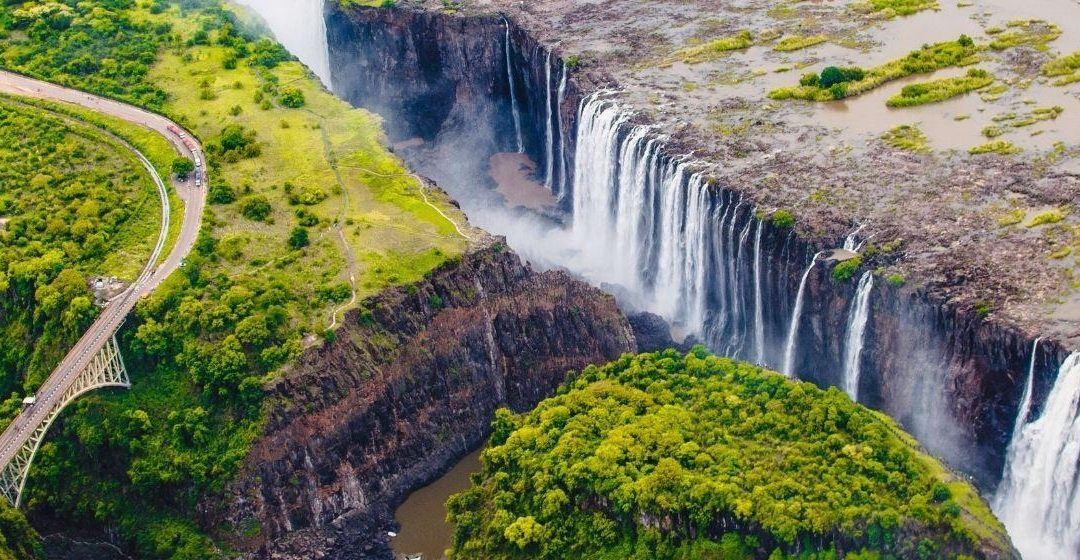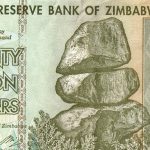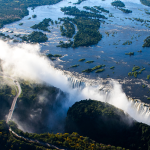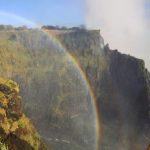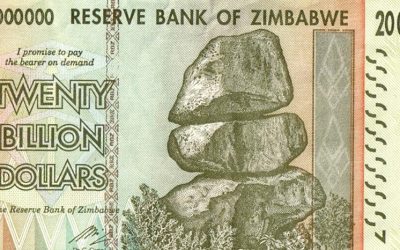Once you find yourself standing at the awe-inspiring Victoria Falls, it becomes clear that the experience is not just about the natural wonder itself, but also about the vibrant cultural tapestry that surrounds it. To truly appreciate and understand this magnificent destination, there are a few cultural tips to keep in mind. From respecting local customs and traditions to embracing the diverse cuisine and lively music, immersing yourself in the rich culture of Victoria Falls will undoubtedly enhance your visit and create lasting memories.
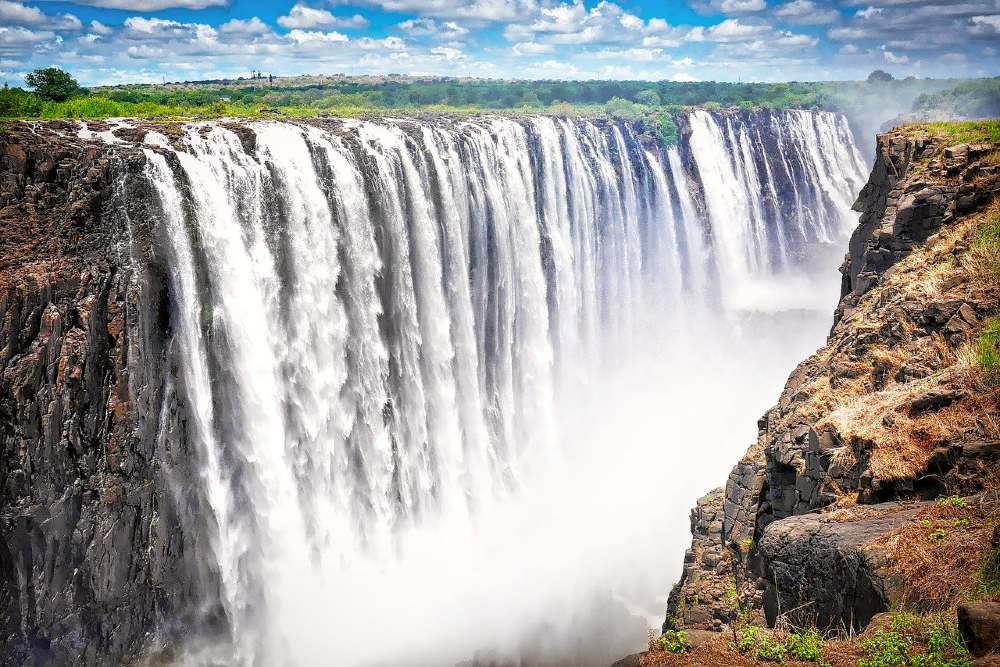
1. Local Customs and Etiquette
1.1 Greetings and Communication
When visiting Victoria Falls, it is important to be aware of the local customs and etiquette to ensure a respectful and enjoyable experience. In terms of greetings and communication, the customary greeting is a handshake accompanied by a warm smile. It is considered polite to address people using their titles, such as Mr., Mrs., or Miss, followed by their last name. If you’re unsure of someone’s title, it is appropriate to use their first name.
1.2 Dress Code
The dress code in Victoria Falls is generally casual and relaxed. However, it is important to be mindful of cultural sensitivities. When visiting sacred sites or participating in cultural events, it is advisable to dress modestly and respectfully. Avoid wearing revealing or offensive clothing, such as short shorts or skimpy tops. Opt for lightweight and breathable clothing due to the warm climate, but always cover your shoulders and knees when necessary.
1.3 Tipping
Tipping is a common practice in Victoria Falls, especially in the service industry. It is customary to leave a gratuity of around 10% of the total bill at restaurants, bars, and hotels. Additionally, it is polite to tip tour guides, drivers, and other service providers who have provided exceptional service. However, tipping is not mandatory and should be based on your satisfaction with the service you receive.
1.4 Photography and Respect for Sacred Places
When visiting Victoria Falls, it is essential to respect the cultural significance of certain sites and to ask for permission before taking photographs. Some locations, such as sacred sites and ceremonies, may be considered off-limits or have specific rules regarding photography. Always be aware of your surroundings and show respect by refraining from taking photos when it is deemed inappropriate or disrespectful.
2. Traditional Languages and Phrases
2.1 Common Local Languages
In Victoria Falls, the primary language spoken is English, as it is the official language of Zimbabwe. However, there are also several local languages spoken among the indigenous communities. These languages include Chewa, Tonga, Kalanga, Nambya, and Ndebele. While most locals can communicate in English, learning a few basic phrases in the local languages can greatly enhance your cultural experience and show respect to the people you encounter.
2.2 Useful Phrases and Greetings
Learning a few common phrases and greetings in the local languages can go a long way in fostering communication and building connections with the local population. Here are some useful phrases to get you started:
- “Muli bwanji?” (Chewa) – This means “How are you?”
- “Muhulu gwenu?” (Tonga) – This means “How are you?”
- “Yebo kunjani?” (Ndebele) – This means “How are you?”
When greeting someone, it is customary to say “hello” or “good day” followed by the appropriate local greeting. Taking the time to learn and use these phrases will be greatly appreciated by the locals and may even result in some warm and friendly conversations.
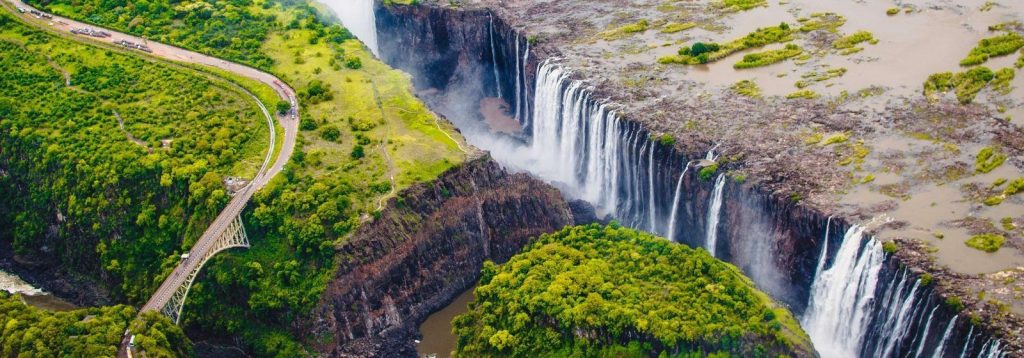
3. Cultural Festivals and Events
3.1 Annual Cultural Festivals
Victoria Falls is home to a rich cultural heritage, and throughout the year, various festivals and events celebrate these traditions. One of the most significant cultural festivals is the Victoria Falls Carnival, held annually from December 29th to January 1st. This event brings together locals and tourists alike to enjoy live music performances, traditional dance, and vibrant parades. Another popular festival is the Vumba Festival, which showcases the unique traditions and customs of the local communities.
3.2 Traditional Dances and Performances
Traditional dances and performances play a vital role in the cultural fabric of Victoria Falls. These dances are often performed during significant events, festivals, or ceremonies. They serve as a way to express joy, celebrate milestones, and honor ancestral spirits. One of the most captivating performances is the Amakwezi Dance, a traditional dance of the Tonga people. It features intricate footwork, vibrant costumes, and rhythmic drumming, creating a mesmerizing spectacle for all who witness it.
4. Indigenous Food and Cuisine
4.1 Local Dishes and Ingredients
Exploring the culinary delights of Victoria Falls is a must for any visitor. The local cuisine reflects the diverse cultural heritage and natural resources of the region. Traditional dishes typically incorporate staple ingredients such as maize, sorghum, pumpkins, and various vegetables. One popular dish is Sadza, a porridge-like staple made from white maize meal. Other notable dishes include Nyama Choma (grilled meat), Mukaka Wako (wild spinach), and Mopane Worms, a local delicacy.
4.2 Traditional Eating Habits and Customs
In Victoria Falls, communal eating is a common practice that promotes togetherness and a sense of unity. Meals are typically shared among family and friends, and it is considered polite to wait for the host to start eating before you begin. When eating traditional dishes, it is customary to use your right hand to scoop up the food, as eating with the left hand is deemed impolite. Additionally, it is considered respectful to finish your entire plate as a sign of appreciation for the meal.
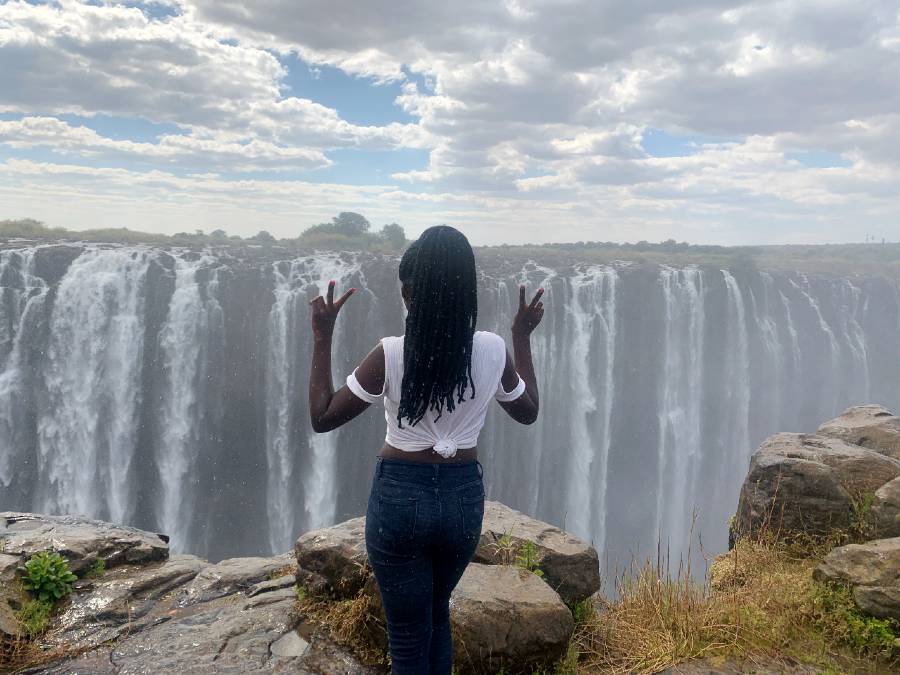
5. Arts and Crafts
5.1 Traditional Art Forms
Victoria Falls is teeming with vibrant traditional art forms that showcase the creativity and craftsmanship of the local communities. Be sure to explore the various art galleries and craft markets to discover unique sculptures, paintings, and textiles. One prominent art form is stone carving, which produces stunning sculptures depicting animals, mythical creatures, and scenes from everyday life. Other traditional art forms include basket weaving, beadwork, and pottery.
5.2 Handicrafts and Souvenirs
If you’re looking to take a piece of Victoria Falls home with you, the local handicrafts and souvenirs offer an excellent opportunity to do so. Handwoven baskets, intricately beaded jewelry, and colorful textiles are just a few examples of the authentic crafts available for purchase. When shopping for souvenirs, consider supporting local artisans and purchasing fair trade products to ensure that your purchase has a positive impact on the community.
6. Sacred Sites and Beliefs
6.1 Importance of Spirits and Ancestors
In Victoria Falls, the beliefs and practices of the indigenous communities often revolve around the importance of spirits and ancestors. Many sacred sites and natural landmarks are believed to be inhabited by ancestral spirits who hold great significance to the local communities. It is important to approach these sites with respect and reverence, understanding that they are places of spiritual significance and cultural heritage.
6.2 Ceremonial Practices and Rituals
Ceremonial practices and rituals form an integral part of the cultural fabric of Victoria Falls. These ceremonies are often performed to honor ancestral spirits, seek blessings, or mark significant life events such as births, marriages, and funerals. Witnessing or participating in these ceremonies can provide a profound insight into the cultural beliefs and traditions of the local communities. However, it is crucial to seek permission and guidance from the relevant authorities or community leaders before attending or observing these sacred practices.
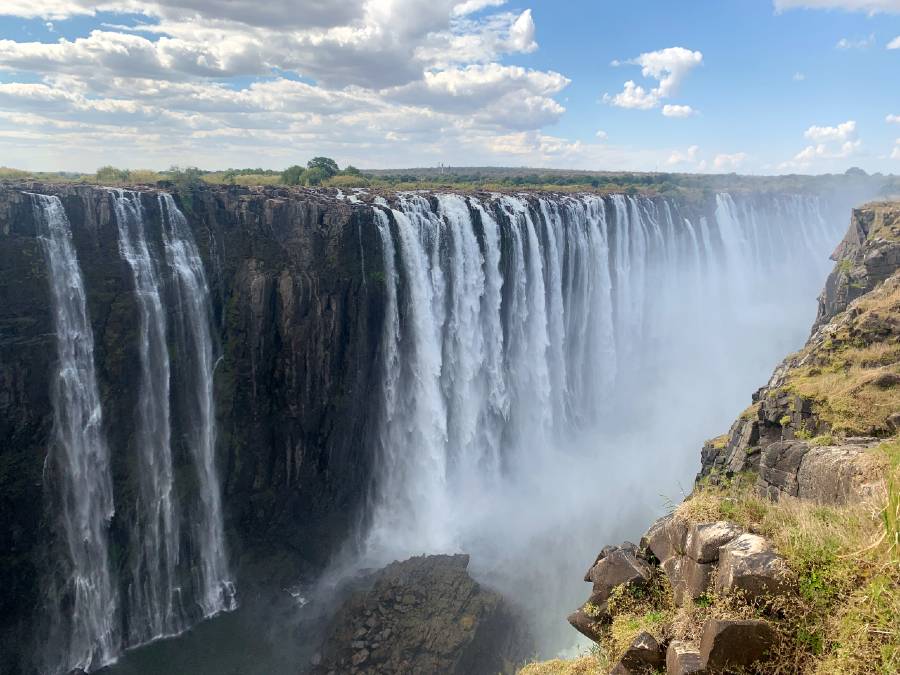
7. Conservation and Environmental Awareness
7.1 Preservation Efforts
Victoria Falls is not only a cultural treasure but also a natural wonder. It is essential for visitors to be mindful of their impact on the environment and support the preservation efforts in the region. Many organizations and initiatives are dedicated to conserving the natural beauty of Victoria Falls, protecting endangered species, and promoting sustainable practices. Consider supporting these efforts through responsible tourism, volunteering, or making contributions to conservation organizations.
7.2 Responsible Tourism and Wildlife Interaction
When visiting Victoria Falls, it is crucial to engage in responsible tourism practices, particularly when it comes to wildlife interaction. Avoid supporting activities that exploit or harm animals, such as riding elephants or visiting unethical animal sanctuaries. Instead, opt for wildlife conservation programs or responsible tour operators that prioritize the well-being and conservation of animals. It is also important to follow designated trails and respect wildlife habitats to minimize ecological disruption.
8. Traditional Music and Instruments
8.1 Indigenous Musical Instruments
Traditional music and instruments hold a special place in Victoria Falls’ cultural identity. The region is known for its diverse array of indigenous instruments, each with its own unique sound and purpose. The mbira, a thumb piano, is one such instrument that is deeply intertwined with the cultural heritage of the region. Other traditional instruments include drums, rattles, and various stringed instruments. Attending a live music performance is a fantastic way to immerse yourself in the rhythmic beats and melodies that have been passed down through generations.
8.2 Music as Oral Tradition and Storytelling
In Victoria Falls, music is not just about entertainment; it is also a means of preserving history and passing down ancestral knowledge. Traditional songs and performances often tell stories of triumph, love, and cultural heritage. By experiencing these musical traditions, you have the opportunity to delve deeper into the rich narratives and oral traditions that shape the identity of the local communities.
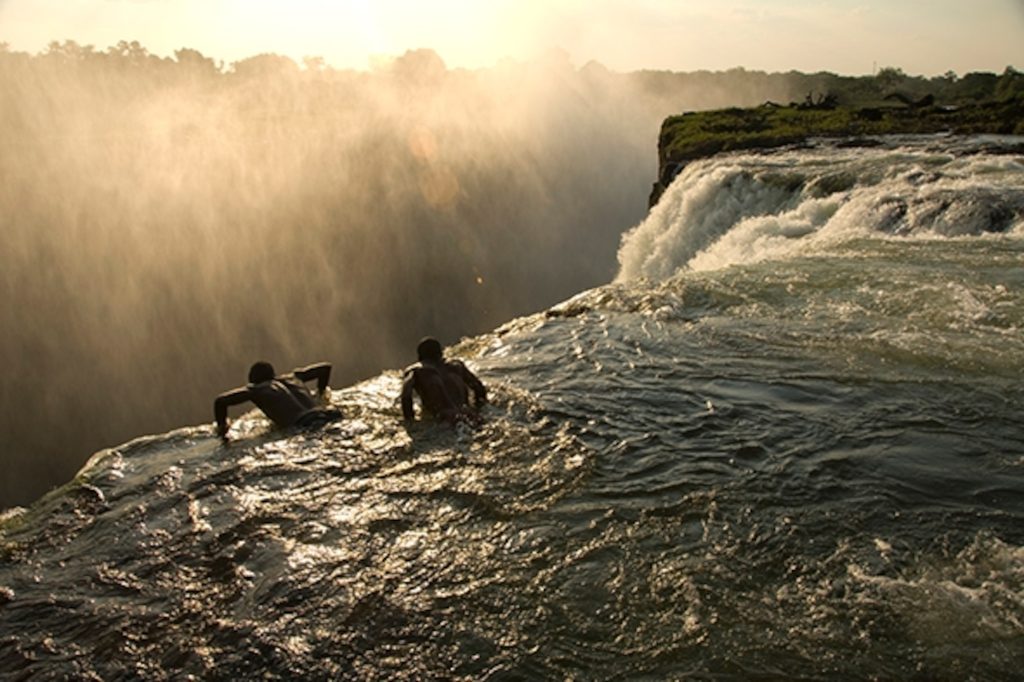
9. Traditional Clothing and Attire
9.1 Traditional Dress for Different Occasions
Traditional clothing in Victoria Falls varies based on the occasion and the ethnic group. Women often wear colorful dresses made from vibrant fabrics, showcasing intricate patterns and designs. Men typically wear shirts made from traditional fabric paired with trousers or shorts. During ceremonial events or festivals, you may see locals dressed in elaborate traditional attire, complete with beaded jewelry and accessories. Embracing the local dress during these occasions can be a fantastic way to show respect and immerse yourself in the cultural celebrations.
9.2 Significance of Colors and Patterns
Colors and patterns hold significant cultural meanings in Victoria Falls. For example, red symbolizes bravery and spiritual significance, while blue represents love and protection. Patterns and intricate designs often signify specific tribal affiliations and cultural symbolism. By understanding the significance of colors and patterns, you can gain a deeper appreciation for the cultural heritage and symbolism embedded in the traditional clothing of Victoria Falls.
10. Local Craftspeople and Artisans
10.1 Supporting Local Artisans
When visiting Victoria Falls, one of the best ways to support the local community is by purchasing handmade crafts directly from local artisans. By buying directly from the source, you ensure that your money goes directly to the skilled craftspeople who create these beautiful works of art. This direct support provides an opportunity for artisans to earn a sustainable income and continue to preserve and pass down their craft to future generations.
10.2 Authenticity and Fair Trade
When purchasing crafts and souvenirs in Victoria Falls, it is important to prioritize authenticity and fair trade practices. Look for certifications or labels that indicate the product’s authenticity and fair trade status, ensuring that the artisans receive fair compensation for their work. By choosing authentic and fair trade products, you can have confidence in the quality and ethical sourcing of your purchase, while also making a positive impact on the local community.
Overall, embracing the cultural tips for visiting Victoria Falls will not only enhance your travel experience but also contribute to the preservation and appreciation of the rich cultural heritage of the region. By respecting local customs, supporting local artisans, and engaging in responsible tourism, you can create meaningful connections and leave a positive impact on the communities you encounter. So go ahead, immerse yourself in the vibrant traditions and embrace the beauty of Victoria Falls.

